|
|
|
|
|
|
|
|
 Polar Icebreaker Cost Assessment, February 13-15, 2017 (Washington, DC USA). The Marine Board, of the Transportation Research Board of the National Academies of Sciences, Engineering, and Medicine will hold its first public session at the Keck Center, 500 5th Street, Washington, DC 20001. To attend, please contact Mark Hutchins at mhutchins@nas.edu. A description of the project, an agenda for the session, the membership of the committee, and additional information are available here. Polar Icebreaker Cost Assessment, February 13-15, 2017 (Washington, DC USA). The Marine Board, of the Transportation Research Board of the National Academies of Sciences, Engineering, and Medicine will hold its first public session at the Keck Center, 500 5th Street, Washington, DC 20001. To attend, please contact Mark Hutchins at mhutchins@nas.edu. A description of the project, an agenda for the session, the membership of the committee, and additional information are available here.
|
Media
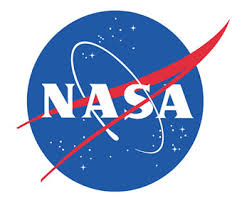 NASA Launched an Unprecedented Study of Greenland's Melting. Now, the Data are Coming in. NASA Launched an Unprecedented Study of Greenland's Melting. Now, the Data are Coming in. In 2015, in a moment of science communication genius, NASA created a mission called " OMG." The acronym basically ensured that a new scientific mission - measuring how quickly the Oceans are Melting Greenland - would get maximum press attention. The subject is actually extremely serious. OMG amounts to a comprehensive attempt, using ships, planes, and other research tools, to understand what's happening as warm seas creep into large numbers of fjords that serve as avenues into the vast ice sheet - many of which contain large and partly submerged glaciers that are already melting and contributing to sea-level rise. The Washington Post
Prime Minister, ITK Sign Agreement on New Inuit-Crown Body. Prime Minister Justin Trudeau touched down in Iqaluit Feb. 9 to meet with Inuit leaders from across Inuit Nunangat and, among other things, to officially launch a new bilateral working group. "It's a tremendous pleasure to be here in town to be welcomed by [Inuit Tapiriit Kanatami President] Natan [Obed] and all the leaders around the table," Trudeau said, flanked on either side by Obed and Nunavut Tunngavik Inc.'s newly elected president Aluki Kotierk. Nunatsiaq Online
How Bases Went From Wooden Huts to Sci-Fi Chic. It's an eye-popping, futuristic design - a dark, sleek building, low and long, that is destined to be a temporary waterfront home for up to 65 people at a time. The price tag is a hefty $100m (£80m). And while a Chinese company is building it, it's not in China, and almost no-one will ever see it. After the original burned down in 2012, the Brazilian navy launched an architectural competition for a replacement design - won by a local firm - and then awarded the building tender to a Chinese defense and engineering contractor, CEIEC. It's due to be completed in 2018. BBC News
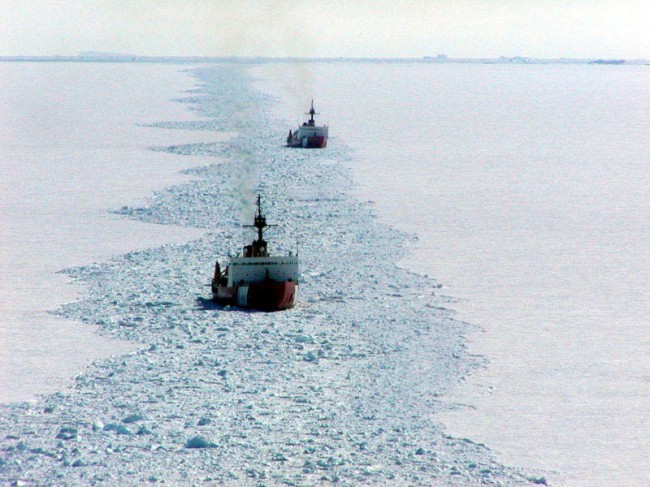 Northern Sea Route Requires Port Infrastructure, Skilled Personnel-FESCO. Northern Sea Route Requires Port Infrastructure, Skilled Personnel-FESCO. Certain factors hinder development of the Northern Sea Route (NSR), FESCO (Far East Shipping Company) Head of the Fleet Department Vladimir Chabrov told TASS on Monday. Those factors are the week port infrastructure, lack of repairing and refueling bases, high costs of icebreaker's exploration, shortage of trained personnel, and others, he said. While in the Arctic's western part some projects on NSR development have begun, in the eastern part this work is at the very beginning. "Besides, low-efficient emergency-rescue services, poor communication, insufficient information infrastructures, and so forth," he added. TASS
Arctic Sea-Ice Cover Sets New Record Low for January, 'Because It's Just Been So Darn Warm.' Extraordinarily warm Arctic air continues to hinder the formation of sea ice around the circumpolar north. And that's led the National Snow and Ice Data Center to declare yet another record - this one reflecting the sparse Arctic sea ice cover for the month of January."If you look at where sea-ice extent is right now, we're at a record low, compared to the remainder of the satellite record that goes back to 1979," says Mark Serreze, a senior research scientist with the Colorado-based Snow and Ice Data Center. KUAC
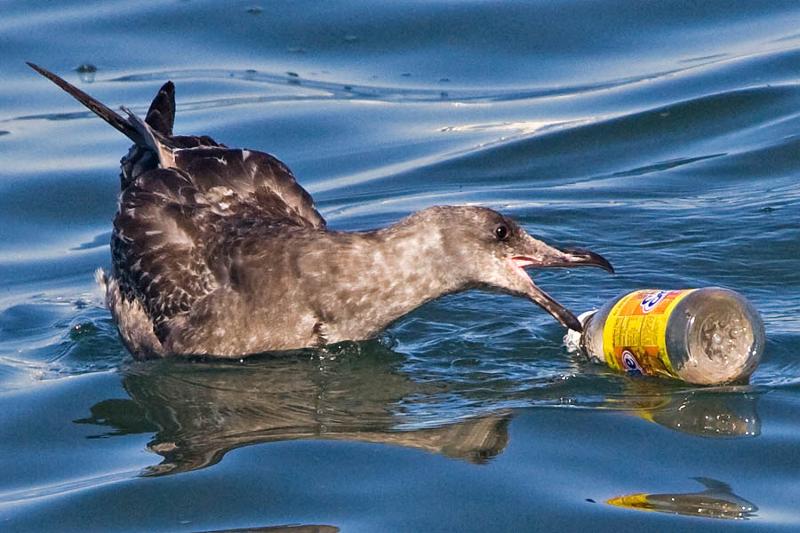 Litter Levels in the Depths of the Arctic are on the Rise. Litter Levels in the Depths of the Arctic are on the Rise. The Arctic has a serious litter problem: in just 10 years, the concentration of marine litter at a deep-sea station in the Arctic Ocean has risen 20-fold, according to researchers. The Arctic has a serious litter problem: in just ten years, the concentration of marine litter at a deep-sea station in the Arctic Ocean has risen 20-fold. This was recently reported in a study by researchers at the Alfred Wegener Institute, Helmholtz Centre for Polar and Marine Research (AWI). Science Daily
|
|
Future Events
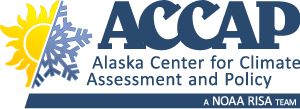 Alaska Center for Climate Assessment and Policy Climate Webinar, February 14, 2017 (Webinar). Alaska Center for Climate Assessment and Policy Climate Webinar, February 14, 2017 (Webinar). The National Climate Assessment (NCA) is produced every four years by the U.S. Global Change Research Program (USGCRP). The USGCRP, under the Global Change Research Act of 1990, is mandated to deliver a status report to the President and Congress that evaluates, integrates and interprets the findings of their federal research program on global change. The NCA aims to integrate new information on climate science into the context of larger social, ecological, and policy systems. It will provide an updated report of climate change impacts and vulnerability, evaluate the effectiveness of mitigation and adaptation activities, and identify knowledge gaps. Alaska has been identified as one of 10 Regional Assessments to be included in the 2018 national report. The purpose of the presentation is to provide a brief background on the NCA, present some current topical areas will include, and seek public feedback. It is hoped that the audience can provides feedback on current landscape changes that are affecting their lifestyles.
6th Annual Fletcher Arctic Conference, February 17-18, 2017 (Medford, MA USA). Fletcher Arctic VI, a TEDx-style event, will showcase the ideas, stories, and initiatives of people who live and work in the Arctic. The conference will bring together inspiring leaders, innovative business people, expert scientists, and artists from the pan-Arctic region. Building on The Fletcher School's interdisciplinary approach, Fletcher Arctic VI will be a forum to engage in conversation and spark open and constructive debate between speakers and participants, providing deep insights into this unique and rapidly changing region.
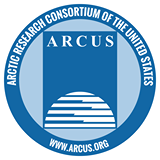 ARCUS Arctic Research Seminar with Dr. John Farrell, February 22, 2017 (Washington, DC USA). The Arctic Research Consortium of the U.S. (ARCUS) is pleased to announce the next Arctic Research Seminar featuring Dr. John Farrell, Executive Director of the U.S. Arctic Research Commission. Dr. John Farrell is the Executive Director of the U.S. Arctic Research Commission, an independent federal agency of Presidential appointees that advises the White House and Congress on Arctic research matters and works with executive branch agencies to establish and execute a national Arctic research plan. The Commission also facilitates cooperation with local and state governments and recommends means for developing international scientific cooperation in the Arctic. ARCUS Arctic Research Seminar with Dr. John Farrell, February 22, 2017 (Washington, DC USA). The Arctic Research Consortium of the U.S. (ARCUS) is pleased to announce the next Arctic Research Seminar featuring Dr. John Farrell, Executive Director of the U.S. Arctic Research Commission. Dr. John Farrell is the Executive Director of the U.S. Arctic Research Commission, an independent federal agency of Presidential appointees that advises the White House and Congress on Arctic research matters and works with executive branch agencies to establish and execute a national Arctic research plan. The Commission also facilitates cooperation with local and state governments and recommends means for developing international scientific cooperation in the Arctic.
** New this week ** Year of Polar Prediction (YOPP) Open Session, February 27, 2017 (College Park, MD USA). The Year of Polar Prediction (YOPP) is one of the key elements of the Polar Prediction Project (PPP) under the World Meteorological Organization (WMO) World Weather Research Program. The mission of YOPP is to enable a significant improvement in environmental prediction capabilities for the polar regions and beyond by coordinating a period of intensive observing, modeling, verification, user-engagement and education activities. The core field campaign for YOPP is scheduled to take place from mid-2017 to mid-2019. The International Coordination Office (ICO) of the PPP kindly invites you to attend a YOPP Open Session on Monday, February 27, 2017, which will take place at the NOAA National Centers for Environmental Prediction (NCEP), College Park, Maryland. For more information on the YOPP Open Session, see here.
 ** New this week ** The Future of Arctic Entrepreneurship, March 3-4, 2017 (Whitehorse, Yukon Canada). This first symposium will focus on the bilateral partnership between Canada and the United States towards the enhancement of clean energy projects. The two-day event will feature roundtable discussions, based around the foundational dimensions that make a successful renewable energy project. Four focus areas of discussion will be: ** New this week ** The Future of Arctic Entrepreneurship, March 3-4, 2017 (Whitehorse, Yukon Canada). This first symposium will focus on the bilateral partnership between Canada and the United States towards the enhancement of clean energy projects. The two-day event will feature roundtable discussions, based around the foundational dimensions that make a successful renewable energy project. Four focus areas of discussion will be:
1. How to overcome technical challenges to develop a project;
2. How stakeholders ensure Indigenous and community engagement;
3. How to ensure the financial commitment necessary for a project; and
4. How policy is either changed or enhanced to promote small-scale renewable energy projects.
Working with experts, academics, government officials, Indigenous leaders, and energy practitioners, the symposium between Canadian and American participants will facilitate a much-needed best practice sharing of how to move the Arctic towards a green, innovative economy.
IV International Forum, March 2017 (Arkhangelsk, Russian Federation) Arkhangelsk will host the Forum. The Forum will be titled Human in the Arctic and will be aimed at putting together joint efforts of the international community to promote effective development of the Arctic region as a territory for comfort life, work and leisure. The Forum will be attended by government officials, representatives of international organizations and prominent business communities, centers for political studies, Polar researchers and members of the international Arctic expeditions, foreign political scientists and economists, Russian and foreign journalists from leading international media organizations. The Forum will be attended by the President of the Russian Federation, Mr. Vladimir Putin. Additional information will be announced here.
The 4th annual Arctic Encounter Symposium (AES) will convene policymakers, industry leaders, and leading experts to confront the leading issues in Arctic policy, innovation, and development in Seattle, WA at the Bell Harbor International Conference Center. As the largest annual Arctic policy event in the United States, the AES mission is to raise awareness, engage challenges, and develop solutions for the future of a region and a people. The two-day program includes two keynote luncheons, expert plenary sessions, break out sessions, a networking cocktail reception and seated three-course dinner.
- The Arctic Cryosphere
- Pollution in the Arctic
- Human Health Aspects of Pollution and Climate Change
- Global and Arctic Systems Feedback Mechanisms
- Resilience within Arctic Ecosystems
- Science and Policy Making
- Socio-Economic Drivers and Impacts of Arctic Change
Organizers announce a call for abstracts which are due by December 2, 2016. The event is organized by the Arctic Monitoring and Assessment Program (AMAP).
 15th annual Climate Prediction Applications Science Workshop (CPASW), May 2-4, 2017 (Anchorage, Alaska USA). The 15th annual Climate Prediction Applications Science Workshop (CPASW), hosted by the U.S. National Weather Service and the Alaska Center for Climate Assessment and Policy, will bring together climate researchers, information producers, and users to share developments in the research and applications of climate predictions for societal decision-making. The theme for this year's workshop is Understanding Extreme Events and Decision-Maker Needs in the Context of Climate Variability and Change. Registration for this workshop will be open on March 1. For more information about the workshop: here. 15th annual Climate Prediction Applications Science Workshop (CPASW), May 2-4, 2017 (Anchorage, Alaska USA). The 15th annual Climate Prediction Applications Science Workshop (CPASW), hosted by the U.S. National Weather Service and the Alaska Center for Climate Assessment and Policy, will bring together climate researchers, information producers, and users to share developments in the research and applications of climate predictions for societal decision-making. The theme for this year's workshop is Understanding Extreme Events and Decision-Maker Needs in the Context of Climate Variability and Change. Registration for this workshop will be open on March 1. For more information about the workshop: here.
Week of the Arctic, May 7-12, 2017 (Fairbanks and Anchorage, Alaska USA). The Arctic Council Ministerial Meeting in Fairbanks, May 2017, provides an amazing opportunity to showcase the city and state. The Ministerial in Fairbanks will highlight science and policy in important ways, at the same time the 20th Anniversary of the Arctic Council is celebrated. Following the Ministerial Meeting, the Arctic Council Host Committee will also host events in Anchorage. This week will include the International Arctic Assembly on May 9th. The International Arctic Assembly will demonstrate an innovative approach to multi-disciplinary, cross-sectorial dialogue that will feature local, national and international speakers from business, policy and research. Plenary panel discussions will focus on Arctic policy, Alaska's unique role in informing and influencing state, national and international policy, scientific research, indigenous leadership and culture, and social-economic development. See the program for the full week here.
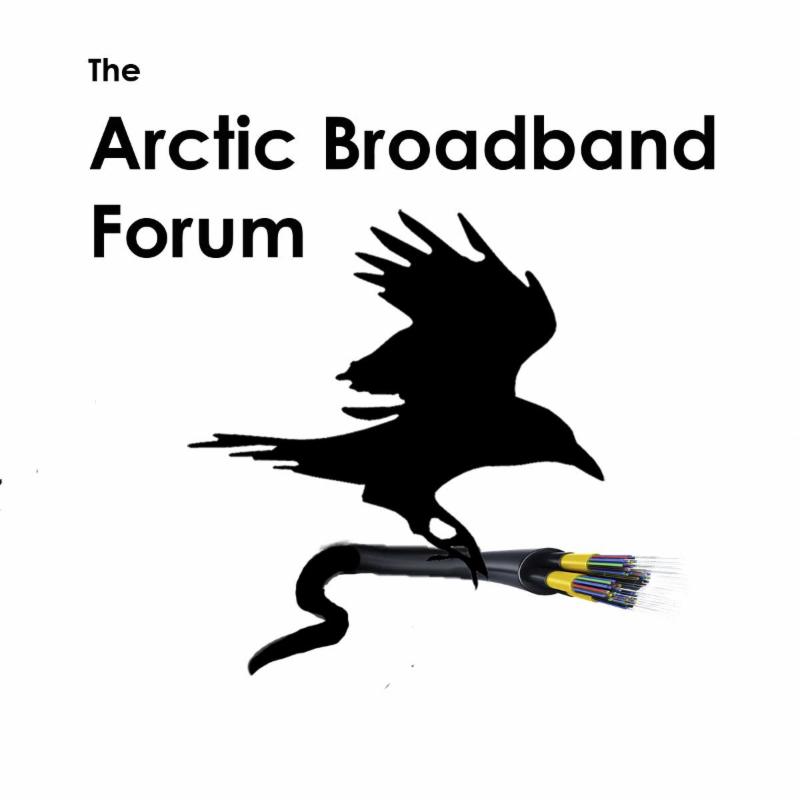 The Arctic Broadband Forum 2017, May 8-9, 2017 (Fairbanks, AK USA). The Arctic Broadband Forum will unite educators, researchers and industry from across the World to discuss the challenges, successes and potential of telecommunications and broadband deployment in the Arctic for economics, healthcare and education. Specific emphasis will be placed on the role of broadband and digital technologies on the cultural preservation and self-determination of indigenous populations throughout the Arctic. The Arctic Broadband Forum 2017, May 8-9, 2017 (Fairbanks, AK USA). The Arctic Broadband Forum will unite educators, researchers and industry from across the World to discuss the challenges, successes and potential of telecommunications and broadband deployment in the Arctic for economics, healthcare and education. Specific emphasis will be placed on the role of broadband and digital technologies on the cultural preservation and self-determination of indigenous populations throughout the Arctic.
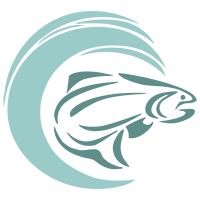 Impacts of a Changing Environment on the Dynamics of High-Latitude Fish and Fisheries, May 9-12, 2017 (Anchorage, Alaska USA).This symposium examines the impacts of the environment, especially climate change and variability, on the dynamics of arctic and sub-Arctic species of commercial, subsistence, and ecological importance. The symposium will focus on the effects of warming, loss of sea ice, ocean acidification, and oceanographic variability on the distribution, phenology, life history, population dynamics, and interactions of these species and how a better understanding of these effects can inform the assessment and management of fish and invertebrate populations in a changing ocean for the benefit of affected communities. Impacts of a Changing Environment on the Dynamics of High-Latitude Fish and Fisheries, May 9-12, 2017 (Anchorage, Alaska USA).This symposium examines the impacts of the environment, especially climate change and variability, on the dynamics of arctic and sub-Arctic species of commercial, subsistence, and ecological importance. The symposium will focus on the effects of warming, loss of sea ice, ocean acidification, and oceanographic variability on the distribution, phenology, life history, population dynamics, and interactions of these species and how a better understanding of these effects can inform the assessment and management of fish and invertebrate populations in a changing ocean for the benefit of affected communities.
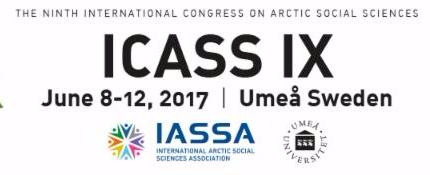 Ninth International Congress of Arctic Social Sciences: People and Places (ICASS IX), June 8-12, 2017 (Umea, Sweden). ICASS IX's theme is People & Place. Research on social sciences and humanities have a great responsibility to address the challenges for sustainable development in the Arctic, with a specific focus on the many different parts of the Arctic and the people that live there. The multiple Arctics have lately been addressed by many policy makers and researchers. The purpose is often to counteract the stereotypic understanding of the Arctic too often represented by icebergs and polar bears. A focus on people and place highlights the many variances across the region in terms of climate, political systems, demography, infrastructure, history, languages, legal systems, land and water resources etc. Ninth International Congress of Arctic Social Sciences: People and Places (ICASS IX), June 8-12, 2017 (Umea, Sweden). ICASS IX's theme is People & Place. Research on social sciences and humanities have a great responsibility to address the challenges for sustainable development in the Arctic, with a specific focus on the many different parts of the Arctic and the people that live there. The multiple Arctics have lately been addressed by many policy makers and researchers. The purpose is often to counteract the stereotypic understanding of the Arctic too often represented by icebergs and polar bears. A focus on people and place highlights the many variances across the region in terms of climate, political systems, demography, infrastructure, history, languages, legal systems, land and water resources etc.
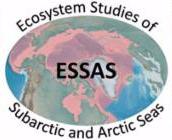 2017 ESSAS Open Science Meeting on Subarctic and Arctic Science, June 11-15, 2017 (Tromsø, Norway). 2017 ESSAS Open Science Meeting on Subarctic and Arctic Science, June 11-15, 2017 (Tromsø, Norway). This 3rd Open Science Meeting (OSM) is intended to attract an interdisciplinary group of scholars who will be prepared to discuss their research in the Subarctic, in both the North Atlantic and the North Pacific, and the Arctic Ocean. The title of the OSM is Moving in, out and across the Subarctic and Arctic marine ecosystems: shifting boundaries of water, ice, flora, fauna, people and institutions. It will document the changes that have occurred, the processes that led to these changes, and how future changes are likely to further affect these marine ecosystems. It will also to consider the people who depend upon these ecosystems and how they may be able to cope with the changes in the ecosystem goods and services that they derive from these ecosystems. These include the availability of subsistence foods and the opportunity for commercial fishing. Economic and societal pressures on coastal communities and nations will be sought in relation with the ecosystem changes. To put the present day in a longer perspective, the conference will include a session on the paleoecology of people in Subarctic and Arctic regions that were forced to adjust to the changing temperature and sea-ice conditions in the past.
The 2nd Asian Conference on Permafrost, July 2-6, 2017 (Sapporo, Japan). Delegates will participate in state-of-the-art oral and poster presentations in the modern city of Sapporo (host of the 1972 Winter Olympics). Field trips will visit marginal and extrazonal mountain permafrost sites that support unique geo-eco-hydrological features. All aspects of frozen ground research will be covered, from needle ice to deep permafrost, from frozen ground engineering in cities to permafrost on volcanoes, and from links between frozen ground and ancient cultures to present-day outreach. Plan now to enjoy science and engineering, excellent food, and unique field trips in Sapporo.
Co-hosted by U.S. National/Naval Ice Center (NIC) and the U.S. Arctic Research Commission (USARC). A biennial symposium originating in 2001 that focuses on U. S. naval operations and national strategic issues in an "ice-free Arctic." This symposium brings together nationally and internationally recognized experts on Arctic observations, climate change, and maritime operations.
 2017 University of the Arctic Rectors' Forum and Conference, August 27-29, 2017 (Aberdeen, Scotland). This conference will also consider how northern scholarship can add to discussions on the North into broader terrains of intellectual engagement. In so doing, it will challenge dominant paradigms of research in both the natural and the social sciences, above all by calling into question the very separation of the world of nature from that of human society which underwrites the distinction between these two branches of scientific inquiry. In its place the conference will seek to forge a new practice of interdisciplinary research, done in collaboration with northern residents and on their terms, which recognizes that every discipline is itself an ongoing conversation, or a way of knowing, rather than a compartment within an overarching, hierarchically organized system of knowledge. Conversations from the North will, then, help to generate a science that is more open-ended, responsive to environmental variation and respectful of the wisdom of inhabitants. 2017 University of the Arctic Rectors' Forum and Conference, August 27-29, 2017 (Aberdeen, Scotland). This conference will also consider how northern scholarship can add to discussions on the North into broader terrains of intellectual engagement. In so doing, it will challenge dominant paradigms of research in both the natural and the social sciences, above all by calling into question the very separation of the world of nature from that of human society which underwrites the distinction between these two branches of scientific inquiry. In its place the conference will seek to forge a new practice of interdisciplinary research, done in collaboration with northern residents and on their terms, which recognizes that every discipline is itself an ongoing conversation, or a way of knowing, rather than a compartment within an overarching, hierarchically organized system of knowledge. Conversations from the North will, then, help to generate a science that is more open-ended, responsive to environmental variation and respectful of the wisdom of inhabitants.
- Small and off-grid community energy solutions
- Oil and gas development
- Renewable energy
- Regulation and Financing
- Transportation and transmission
The AES is a multi-disciplinary event expected to draw several hundred industry officials, scientists, academics, policy makers, energy professionals and community leaders together to collaborate and share leading approaches on Arctic energy issues.
 Polar Law Symposium 2017 and Rovaniemi Arctic Spirit, November 13-16, 2017 (Rovaniemi, Finland). The purpose of the Polar Law Symposium is to examine, in detail, the implications of the challenges faced by the Polar Regions for international law and policy and to make recommendations on appropriate actions by states, policy makers and other international actors to respond to these emerging and re-emerging challenges. The Rovaniemi Arctic Spirit Conference is integrated with the Polar Law Symposium, which will be organized by the Northern Institute for Environmental and Minority Law at the Arctic Center of the University of Lapland. Polar Law Symposium 2017 and Rovaniemi Arctic Spirit, November 13-16, 2017 (Rovaniemi, Finland). The purpose of the Polar Law Symposium is to examine, in detail, the implications of the challenges faced by the Polar Regions for international law and policy and to make recommendations on appropriate actions by states, policy makers and other international actors to respond to these emerging and re-emerging challenges. The Rovaniemi Arctic Spirit Conference is integrated with the Polar Law Symposium, which will be organized by the Northern Institute for Environmental and Minority Law at the Arctic Center of the University of Lapland.
 POLAR 2018, June 15-27, 2018 (Davos, Switzerland). POLAR2018 is a joint event from the Scientific Committee on Antarctic Research (SCAR) and the International Arctic Science Committee (IASC). The SCAR meetings, the ASSW and the Open Science Conference will be hosted by the Swiss Federal Institute for Forest, Snow and Landscape Research WSL under the patronage of the Swiss Committee on Polar and High Altitude Research. The WSL Institute for Snow and Avalanche Research SLF is organizing POLAR2018. POLAR 2018, June 15-27, 2018 (Davos, Switzerland). POLAR2018 is a joint event from the Scientific Committee on Antarctic Research (SCAR) and the International Arctic Science Committee (IASC). The SCAR meetings, the ASSW and the Open Science Conference will be hosted by the Swiss Federal Institute for Forest, Snow and Landscape Research WSL under the patronage of the Swiss Committee on Polar and High Altitude Research. The WSL Institute for Snow and Avalanche Research SLF is organizing POLAR2018.
As the Symposium is organized jointly by two leading Research Institutes of Russian Academy of Science - Institute of Water Problems and Melnikov Permafrost Institute, particularly the contributions on following research topics are welcome:
- Observational evidences of change in coupled permafrost-hydrology system.
- Present state and future projections of local, regional and pan-Arctic hydrology.
- Modeling studies representing landscape evolution, dynamics of water storages and permafrost degradation.
- Impacts of permafrost hydrology changes on local communities."
VII International Conference on Cryopedology, August 21-25, 2017 (Yaktsk, Russia). The conference will be hosted by the Institute for Biological Problems of the Cryolithozone of the Siberian Branch of the Russian Academy of Sciences (SB RAS). Plenary reports will be organized in the hall of the Academy of Sciences of the Sakha (Yakutia) Republic. The official languages of the conference are English and Russian (with translation). All technical facilities (projectors, computers, video sets) will be available during the conference for presentation of papers. Additional information will be available soon. See the Facebook page here.
|
|

  
4350 N. Fairfax Drive, Suite 510
Arlington, VA 22203, USA
External links in this publication, and on the USARC's World Wide Web site ( www.arctic.gov) do not constitute endorsement by the US Arctic Research Commission of external Web sites or the information, products or services contained therein. For other than authorized activities, the USARC does not exercise any editorial control over the information you may find at these locations. These links are provided consistent with the stated purpose of this newsletter and the USARC Web site.
|
|
|
|
|
|
|
|
|